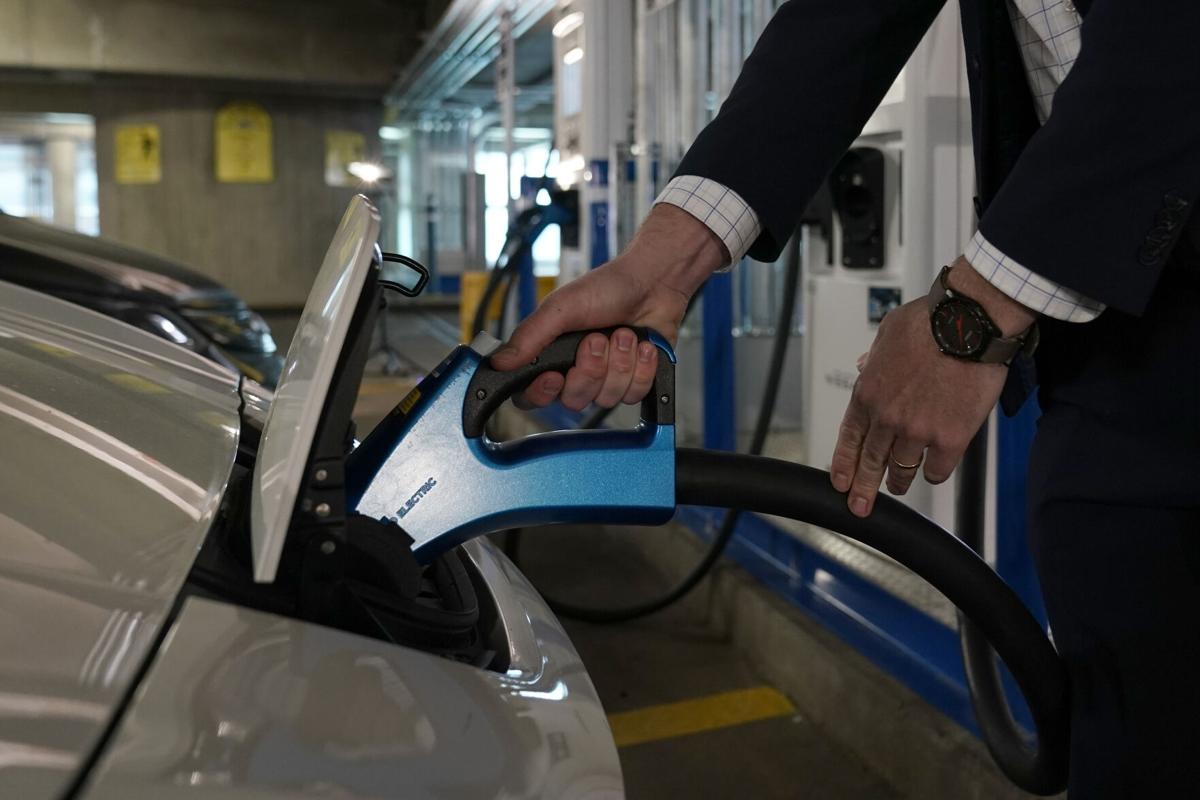Tucson City Council has adopted an ordinance to require some new residential construction to be electric vehicle-ready.
Council members unanimously approved a motion Tuesday to amend the city’s building code to require new construction of one- and two-family dwellings to have a designated parking space with one 40-amp power outlet installed to charge electric vehicles.
The code calls the new requirement an “EV ready space” for residences including single family homes, duplexes and townhouses. The requirement doesn’t apply to residences with no on-site parking.
The move comes as part of the city’s “Electric Vehicle Roadmap” adopted in April to improve air quality and public health, reduce consumer fuel costs and make the city’s electric grid more efficient through supporting vehicle electrification.
“I’m not looking at this particular issue on a case-by-case basis, but having a vision for how we’re going to build an electric vehicle grid and how we’re going to move into the future based on the vision and the priorities that this mayor and council has been so clear on in terms of climate resiliency and climate adaptation,” Mayor Regina Romero said. “This is a big portion of that.”
The electric vehicle code change also supports the climate emergency declaration that the City Council adopted in September 2020, which committed Tucson to reach carbon neutrality by 2030 with transit electrification as a key strategy.
The city kept the mandatory circuit size of the electric vehicle outlet at 40 amps or lower to avoid exceeding electric service capacity in the typical one- and two-family home. A 40-amp circuit can charge most electric vehicles overnight. Homeowners can install additional infrastructure to quick-charge an electric car, but they are responsible for the increased costs.
The city’s Commission on Climate, Energy and Sustainability analyzed the proposal and found it typically cost $200 to include an electric vehicle outlet when constructing a new home. Tucson Electric Power provides a $100 incentive for doing so, making the net cost $100.
The committee found the average cost of retrofitting a home with the outlet is $1,250, including a $500 incentive from TEP.
On Tuesday, mayor and council also directed city staff to look into amending the code further to require electric vehicle infrastructure for multi-family residential and commercial development.
In 60 days, staff will come back to the City Council with proposed language for the change after analyzing marketing conditions, assessing the impact to the electrical grid and reaching out to stakeholders such as developers, business owners, affordable housing advocates and utilities.





